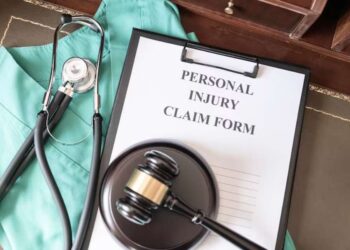When convicted or found guilty of a crime, they automatically get a criminal record. This record is available on the police database to be disclosed on the police record check.
Besides law enforcement agents, others can find your record through a background check when you get a record. You may also wonder whether your record can affect you even after serving time or other disciplinary obligations. This article discusses how a record can affect your future and how to avoid or clear your record.
How a Criminal Record Affects Your Future
A criminal record does not just end after judicial discipline; your record usually endures throughout your life. While it may seem like simple paperwork or documentation, a criminal record can significantly affect your future. Below are some common ways a criminal record can affect you:
Difficulty Obtaining Employment
Employers often conduct background checks when hiring employees. Many employers prefer applicants with clean records, while some organizations have strict policies against hiring people with criminal records.
Your record can disqualify you from an employment opportunity, even when you meet other qualifications. Even when you get a job, your record can prevent you from getting a work permit or a professional license to allow you to take up employment.
Financial Impacts
Besides keeping you out of work, your criminal records can affect your financial life directly. You’ll find it more difficult to obtain loans and credit with a criminal record. Most financial institutions will consider your record as an indicator of unreliability.
Even when they are willing to offer you a loan, it will come with higher interest rates. A criminal record also affects your insurance premiums. With a record, insurers will consider you a higher risk. As a result, they’ll increase your health, life, and even auto insurance rates.
Difficulty Securing Housing
Like employers, landlords, and housing authorities conduct background checks while considering housing applications. They consider individuals with records as high-risk individuals and stigmatize them.
Some housing authorities and agencies have policies against renting to people with records. It is much worse for people with felony convictions and those just coming out of jail. Some landlords require proof of employment and a steady income, which they cannot provide.
How to Avoid a Criminal Record
Considering the impact of a criminal record on your future, it is best to avoid it at all costs. Naturally, everyone wants to avoid a criminal record, but it may seem impossible after an arrest.
Nevertheless, getting arrested does not always mean getting a criminal record. You can still avoid a criminal record if a court has not yet found you guilty of any criminal charge. Below are a few options your attorney could explore to help you avoid a criminal record:
- Get a diversion program
- Seek alternative sentencing
- Accept the Victim Compromise Program
Despite your best attempts, you may not always avoid a criminal record. Still, you can mitigate its impact by expunging or sealing your record. Expungement erases your records while sealing makes it inaccessible to the public. Contact a reliable criminal defense lawyer to see whether you qualify for a criminal record expungement or sealing.
Endnote
A criminal record does not end with your judicial discipline. It can affect your future, making it difficult to obtain employment and secure housing. It also presents financial difficulty, presenting you as unreliable to financial and insurance institutions. However, you can avoid a record with a diversion program, alternative sentencing, or the Victim Compromise Program.










